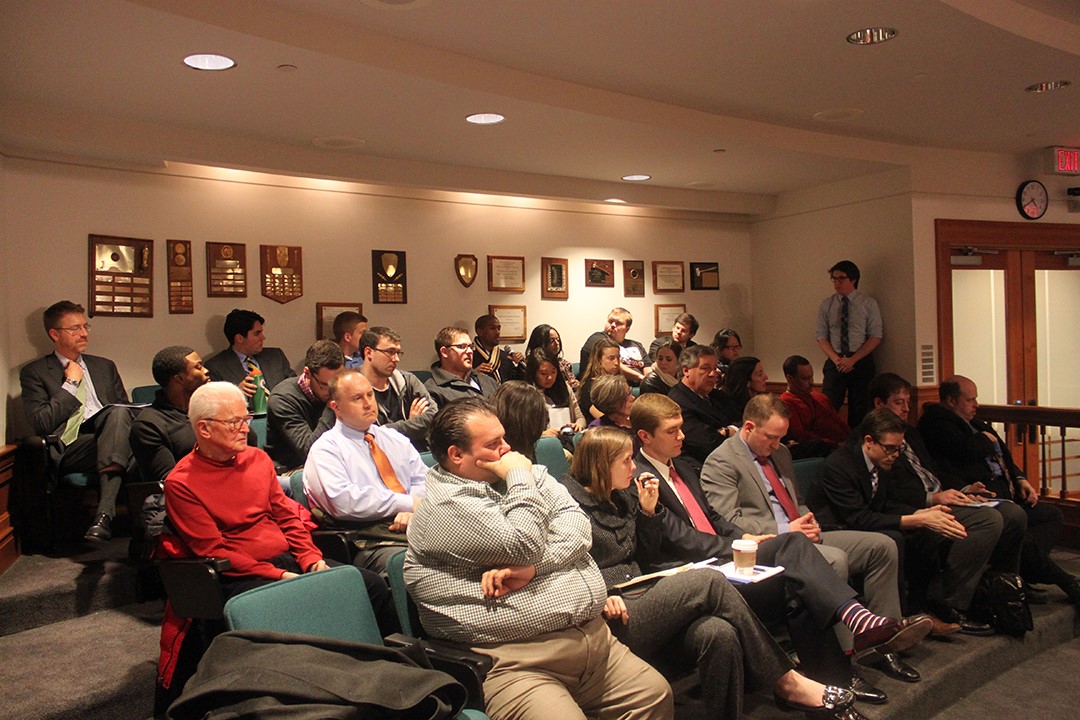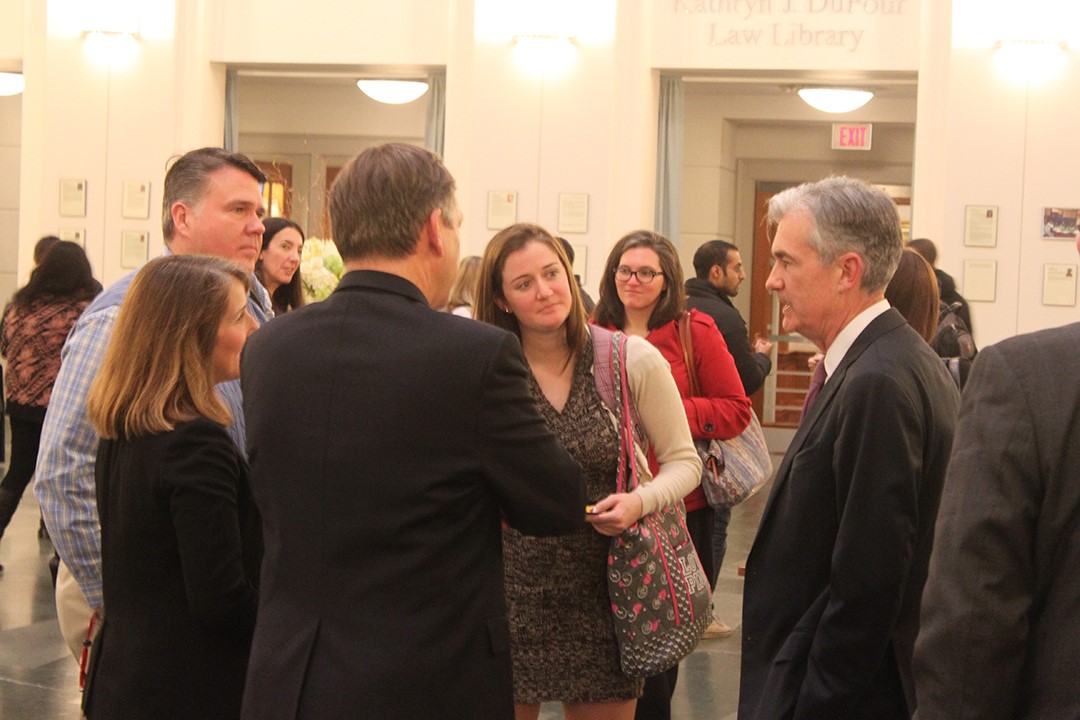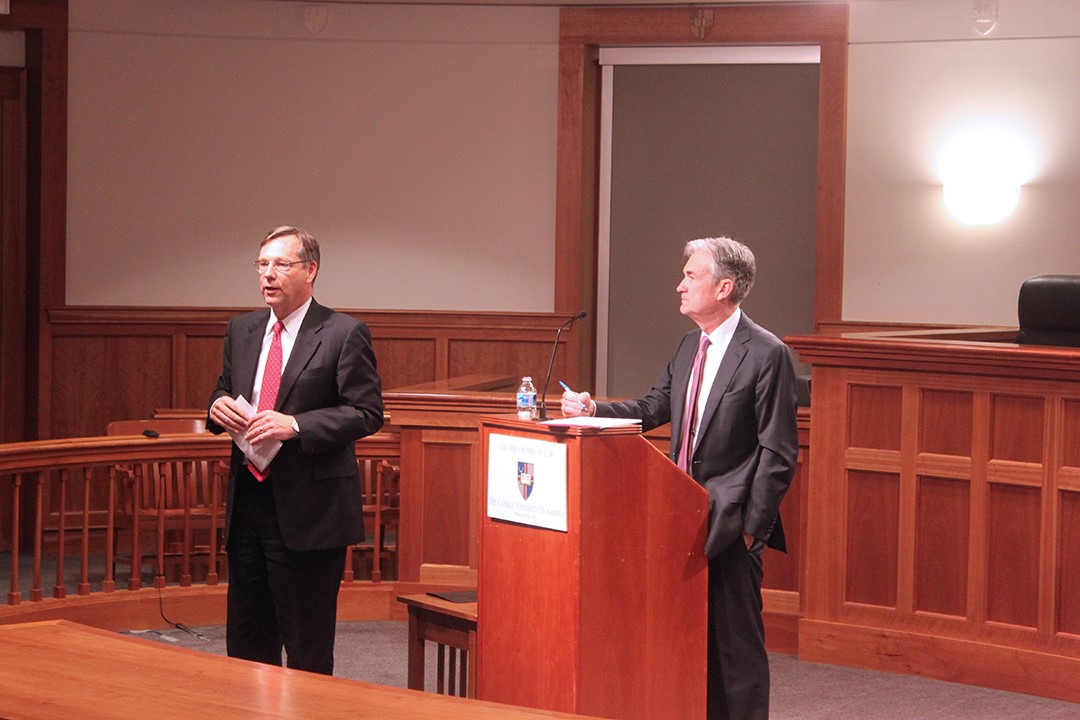Jerome H. Powell, a member of the Board of Governors of the Federal Reserve System, called recent legislative proposals to dilute its autonomy "misguided" during a speech at Catholic University's Columbus School of Law on Feb. 9th. Invited by Dean and Knights of Columbus Professor of Law Daniel F. Attridge to speak as part of the law school's longstanding Brendan Brown Lecture Series, Powell's remarks, "Audit the Fed and Other Proposals" (view on law school video channel) offered a vigorous defense of its actions in response to the steep national recession that began in 2008. "Evidence as of today is very strong that the Fed's actions generally succeeded and are a major reason why the U.S. economy is now outperforming those of other advanced nations," Powell said. "In fact, the Fed's actions were effective, necessary, appropriate, and very much in keeping with the traditional role of the Fed and other central banks." Governor Powell, (whose grandfather, James H. Hayden earned his doctorate of law from Catholic University and later served as dean of the law school from 1941-54) took specific aim at three legislative proposals which, if enacted, would limit the central bank's authority and flexibility to respond to financial crisis in the future.

One idea, "Audit the Fed," would subject the Federal Reserve's conduct of monetary policy to unlimited congressional policy audits. A second proposal would require the Fed to follow a specific equation in setting monetary policy, while a third would impose new limits on its powers to provide liquidity during a financial crisis. Among other objections, Powell said "These proposals are based on the assertion that the Federal Reserve operates in secrecy and was not accountable for its actions during the crisis, a perspective that is in violent conflict with the facts." He directly refuted other common assertions made by critics, such as the notion that the Fed's liquidity policy as expressed through its lending amounted to throwing money at problems. "Every single loan we made was repaid in full, on time, with interest," Powell stated. He concluded by saying, "Congressional oversight of the Federal Reserve, including its conduct of monetary policy, is extensive, but no doubt could be improved in ways that do not threaten the Fed's effectiveness."

His opinions were his own, not an official statement from the Federal Reserve. Powell's remarks were the first time a member of the Board of Governors has publicly addressed the legislative proposals that could affect the central bank and his lecture drew strong media interest, from Bloomberg News and The Wall St. Journal, among others. After his prepared remarks, Powell took questions from the audience, which ranged from fairly technical matters to the simple query, "What does the Fed do?" He also attended a post-lecture reception. Named in honor of the sixth dean of the Columbus School of Law, The Brendan F. Brown lecture series seeks to provide the law school community with an opportunity to participate in an exchange of views on a variety of topics within both a formal and informal context.


